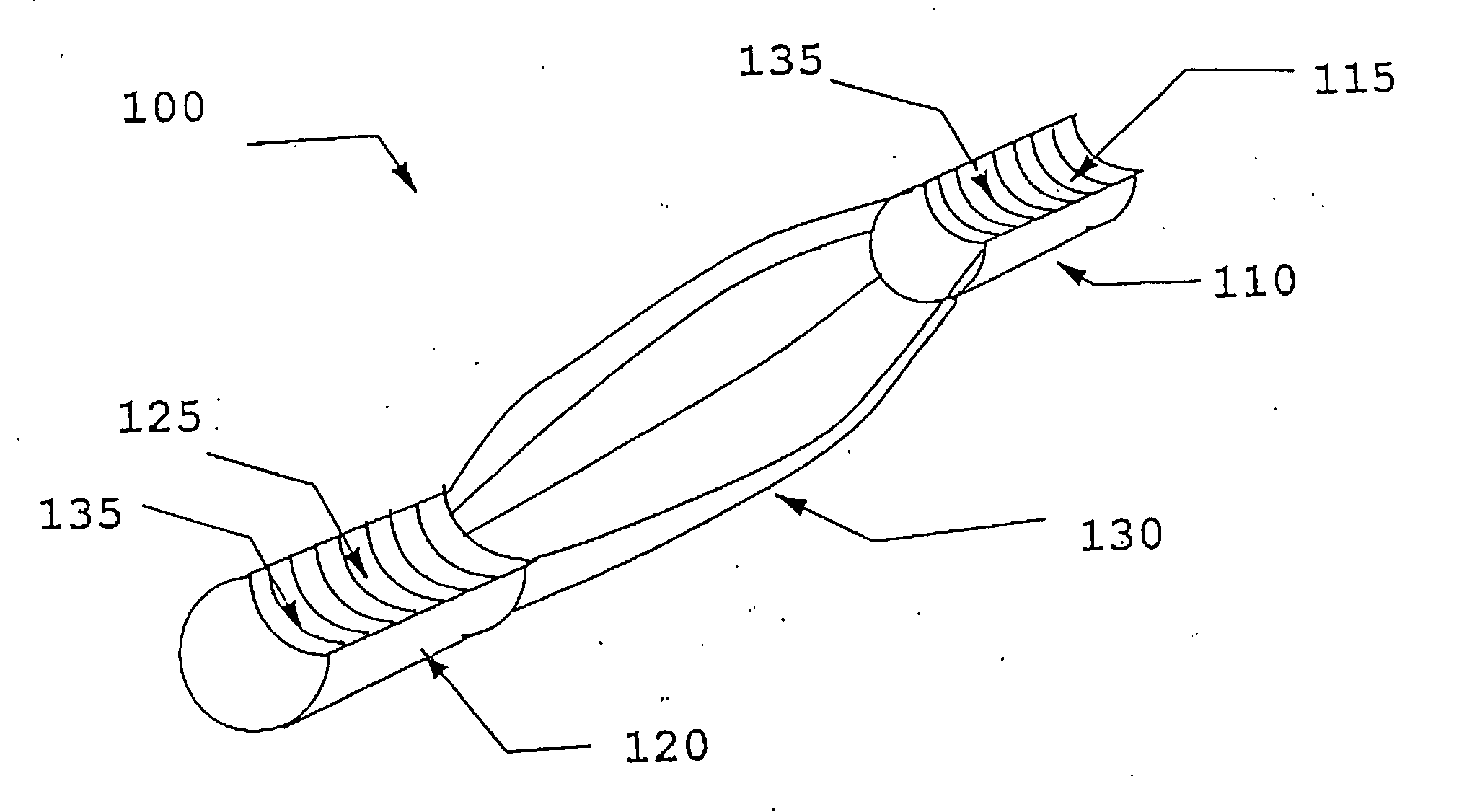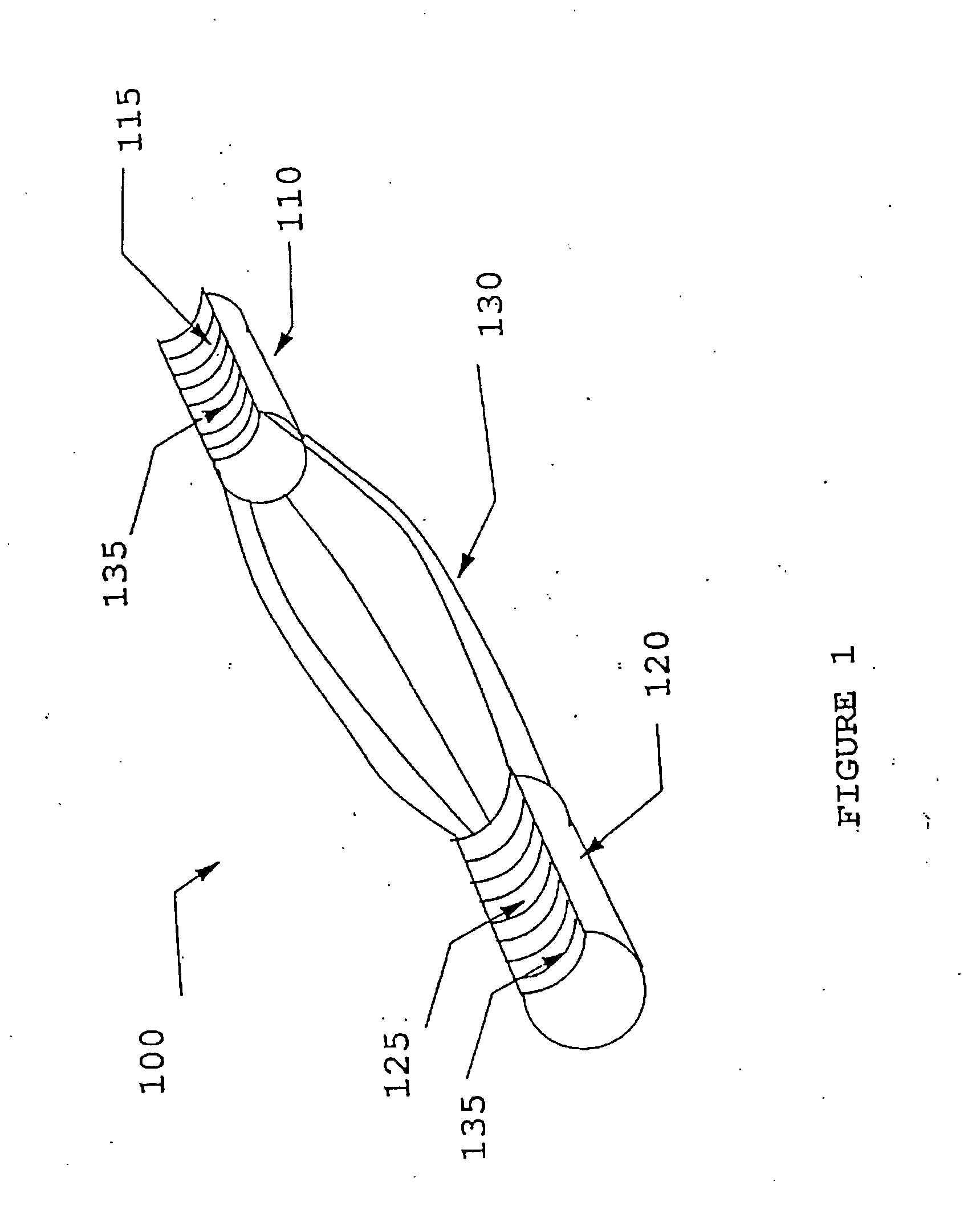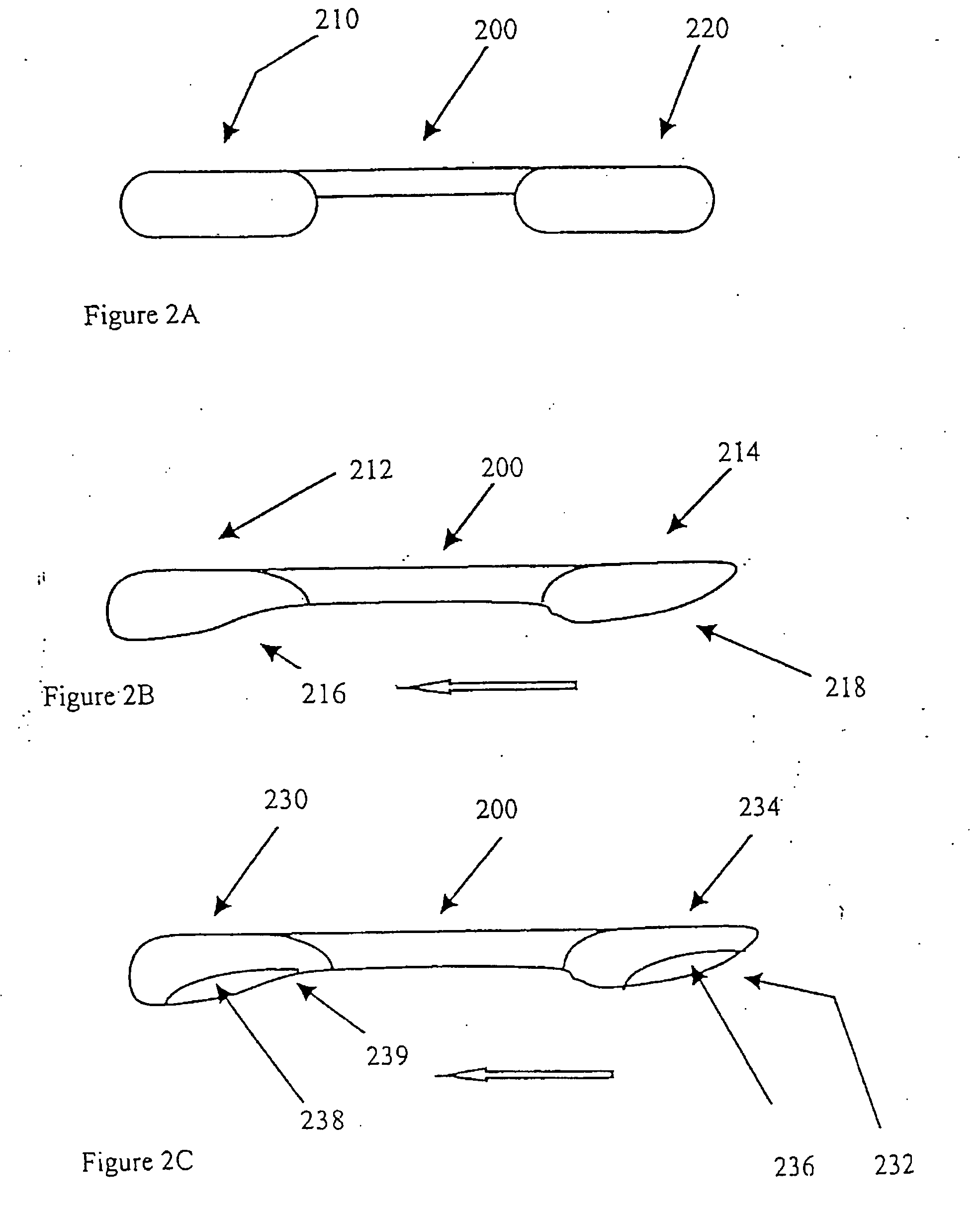Materials and methods for improved bone tendon bone transplantation
a technology of bone tendon and material, applied in the field of material and method for improving bone tendon bone transplantation, can solve the problems of inability to achieve a technique, lack of flexibility and stability of the repaired joint, and difficulty in utilizing bone/tendon grafts
- Summary
- Abstract
- Description
- Claims
- Application Information
AI Technical Summary
Benefits of technology
Problems solved by technology
Method used
Image
Examples
example 1
Procedure for Harvesting of Crude BTB for Patellar Tendon Tibial Donor
[0043] A BTB was harvested according to the following procedure:
[0044] 1. Using blunt and sharp dissection remove the three layers of connective tissue from the anterior portion of the tendon.
[0045] 2. Using scalpel or scissors cut along the medial and lateral borders of the tendon. Use the scissors to bluntly dissect under the tendon to separate it from the fat layer.
[0046] 3. Cut around the Patellar block to separate it form the proximal tibia and distal femur. Leave approximately 4 cm of quadriceps tendon attached to the patellar if required. If no quadriceps tendon attachment is specified then remove quadriceps from patellar completely using sharp dissection.
[0047] 4. Pull tendon away from capsule and remove all excess adipose tissue to the point of tibial insertion.
[0048] 5. With a saw make a transverse cut through approximately the tibial tuberosity about 30 mm from the tendon insertion point. Make a s...
example 2
Procedure for Forming Patellar Tendons with Preshaped Dowels for Patellar Tendon Tibial Donor
[0055] A BTB was harvested according to the following procedure:
[0056] 1. Using blunt and sharp dissection remove the three layers of connective tissue from the anterior portion of the tendon.
[0057] 2. Using a scalpel or scissors cut along the medial and lateral borders of the tendon to separate it from the fat layer.
[0058] 3. Cut around the Patellar block to separate it from the proximal tibia and distal femur.
[0059] 4. Pull tendon away from capsule and remove all excess adipose tissue to the point of tibial insertion.
[0060] 5. With a saw make a transverse cut through the tibial tuberosity about 30 mm from the tendon insertion point. Make a similar cut just proximal to the insertion point removing the tibial plateau. Make another cut across the coronal plane 20-30 mm posterior from the insertion point.
[0061] 6. With a saw square the sides of the tibia bone block.
[0062] 7. With a saw...
example 3
Production of Porcine BTB
[0078] A tissue sample was harvested from a pig knee to form a traditionally shaped BTB shown in FIGS. 9A, 9B and 9C according to the above disclosed method. The graft measured 65 mm (l)×14 mm (w), with a total length of 131 mm and thickness of 6 mm. The tibia block measured 35 mm (l)×16 mm (w)×12 mm (h) and the patellar block measured 32 mm (l)×16 mm (w)×17 mm (h). The graft looked similar to a human BTB graft, and had a very dense, cancellous bone on the patella and tibia.
PUM
 Login to View More
Login to View More Abstract
Description
Claims
Application Information
 Login to View More
Login to View More - R&D
- Intellectual Property
- Life Sciences
- Materials
- Tech Scout
- Unparalleled Data Quality
- Higher Quality Content
- 60% Fewer Hallucinations
Browse by: Latest US Patents, China's latest patents, Technical Efficacy Thesaurus, Application Domain, Technology Topic, Popular Technical Reports.
© 2025 PatSnap. All rights reserved.Legal|Privacy policy|Modern Slavery Act Transparency Statement|Sitemap|About US| Contact US: help@patsnap.com



